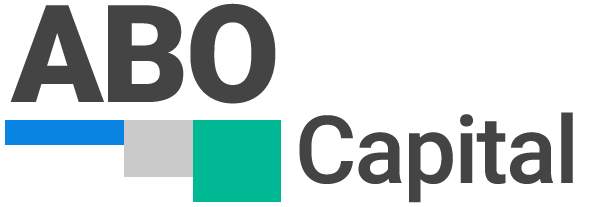Conventional Mortgages: Who Should Apply and How to Qualify
Owning your own home starts with a mortgage process. Many borrowers choose to use a conventional loan program and with good reason: with lower rate options and flexibility on mortgage insurance, the conventional program is attractive to many home buyers.
Key Takeaways About Conventional Loans
Need quick answers in your journey to finding the perfect home loan? Here’s a quick breakdown of the key facts you need about conventional mortgages.
-
Conventional loans are the most commonly used program
-
Generally, conventional loans do not require mortgage insurance
-
Many conventional loan programs expect a 20% down payment, however, this can change depending on the lender you use
What Exactly Is A Conventional Loan?
Conventional mortgages are home loans issued by private lenders, such as banks and credit unions, and are not directly backed by the government. Unlike government-backed loans (FHA, VA, USDA), which have specific eligibility requirements and purposes, conventional mortgages offer more flexibility and cater to a wider range of borrowers.
Here’s a breakdown of how conventional mortgages differ:
- Government Backing: Conventional mortgages rely on your creditworthiness and the property itself as security, whereas government-backed loans are insured by federal agencies, allowing for more lenient credit requirements.
- Eligibility: Qualifying for a conventional mortgage typically requires a stronger credit score and a higher down payment compared to government-backed options.
- Loan Options: Conventional mortgages offer a wider variety of loan products, including fixed-rate and adjustable-rate mortgages (ARMs), allowing you to tailor your loan to your financial goals.
The Players Involved:
- Private Lenders: Banks, credit unions, and other financial institutions originate conventional mortgages, meaning they provide the loan funds.
- Fannie Mae & Freddie Mac: These government-sponsored enterprises purchase a significant portion of conventional mortgages from lenders, freeing up capital for them to offer more loans. This indirectly affects interest rates and loan availability for conventional mortgages.
Conforming vs. Non-Conforming Loans:
Conventional loans come in two categories: conforming and non-conforming. Conforming loans adhere to specific loan amount limits set by Fannie Mae and Freddie Mac. These limits vary by county but generally fall under $766,550 for most areas. Non-conforming loans exceed these limits and are often referred to as “jumbo loans.”
Get Expert Insights On Your Loan Options
Steve Abo and his team of mortgage strategists will help you find the right program for your ideal home, market, and goals.
Qualifying for a Conventional Mortgage
Obtaining a conventional mortgage might seem daunting, but understanding the key requirements can empower you on your homeownership journey. Here’s a breakdown of the essential steps:
Credit Score: This is a critical factor in qualifying for a conventional mortgage. Generally, a minimum credit score of around 620 is required, with higher scores leading to better interest rates. Think of your credit score as your financial report card, and a strong score demonstrates your responsible credit history.
- The Impact of Credit Score: A higher credit score translates to lower interest rates on your conventional mortgage. This can save you tens of thousands of dollars over the life of your loan. For instance, the difference between a 620 credit score and a 740 score could mean a quarter-point reduction in interest rate, significantly impacting your monthly payments.
Down Payment: While the ideal down payment for a conventional mortgage is 20% of the purchase price, there are options for lower down payments. Here’s the breakdown:
- 20% Down Payment: This magic number allows you to avoid private mortgage insurance (PMI), which is an additional monthly fee that protects the lender in case of default. It also demonstrates a strong financial position and can lead to the most favorable loan terms.
- Less Than 20% Down Payment: Conventional mortgages allow down payments as low as 3% with PMI. While PMI adds to your monthly payment, it can still be a viable option for those who might not have a 20% down payment saved.
Other Considerations:
- Debt-to-Income Ratio (DTI): Lenders consider your DTI ratio, which compares your total monthly debt payments to your gross monthly income. A lower DTI indicates a greater ability to manage your mortgage payment alongside other financial obligations.
- Employment History: Stable employment and a history of consistent income demonstrate your ability to repay the loan.
- Additional Documentation: Be prepared to provide proof of income (pay stubs, tax returns), assets (bank statements), and verification of employment.
Different Types of Conventional Loans
Conventional mortgages offer a wider variety of loan options compared to government-backed loans, allowing you to tailor your financing to your specific needs and financial goals. Here’s a breakdown of the most common types:
Conforming Loans
These are conventional mortgages that adhere to loan amount limits set by Fannie Mae and Freddie Mac. These limits vary by county but typically fall under $766,550 for most areas. Conforming loans offer competitive interest rates and are widely available through various lenders.
- Regular Conforming Loans: This is the most common type of conventional loan, meeting the standard conforming loan limit.
- Conforming Jumbo Loans: In some high-cost areas, the conforming loan limit may be higher (up to $1,149,825). These loans are still considered conforming but offer higher borrowing amounts for more expensive properties.
Non-Conforming Loans (Jumbo Loans)
These loans exceed conforming loan limits and are typically used to finance luxury homes or properties in very expensive areas. Jumbo loans may come with slightly higher interest rates compared to conforming loans, but they offer financing options for those purchasing higher-priced homes.
Fixed-Rate vs. Adjustable-Rate Mortgages (ARMs):
- Fixed-Rate Mortgages: This is a popular choice for those who prioritize predictability. With a fixed-rate mortgage, your interest rate and monthly payment remain constant throughout the loan term. This provides peace of mind knowing your housing costs won’t fluctuate.
- Adjustable-Rate Mortgages (ARMs): ARMs offer an initial period with a lower interest rate (often lower than fixed rates). However, after the initial fixed-rate period, the interest rate can adjust periodically (usually annually or every few years) based on a financial index. This can lead to potential savings upfront but carries the risk of higher monthly payments in the future.
Other Considerations:
While less common, there are niche conventional loan options for specific situations.
- Low-Down-Payment Loans: Conventional mortgages can allow down payments as low as 3% with private mortgage insurance (PMI).
- Non-Qualified Mortgages: These loans are for borrowers who may not meet traditional qualifying criteria but have documented assets or income that can support the loan. However, they often come with stricter requirements and higher interest rates.
Remember: When choosing a conventional mortgage, it’s crucial to consider your financial goals and risk tolerance. Do you prioritize a predictable monthly payment or a potentially lower initial rate? A licensed mortgage broker, like the team at Abo Capital, can help you navigate your options and select the conventional loan that best suits your needs.
Financing That Dream Property Could Be Closer Than You Think
Conventional vs FHA, VA, or USDA Loans
While conventional mortgages offer a great path to homeownership for many, they aren’t the only option. Here’s a comparison table to help you understand how conventional loans stack up against other popular loan types:
Conventional mortgages typically require a strong credit score and a higher down payment (ideally 20%, but possible with as low as 3% down payment with private mortgage insurance). However, FHA loans offer more lenient credit score requirements, making them easier to qualify for with a minimum down payment of 3.5%.
VA loans are a fantastic option for veterans and active military personnel, allowing them to purchase a home with no down payment required. USDA loans cater to rural property purchases and come with income limits, but they also eliminate the down payment requirement in eligible areas.
When it comes to interest rates, conventional loans often boast the potential for lower rates compared to other options. FHA and USDA loans may have slightly higher interest rates, while VA loans offer competitive rates.
Loan limits are another factor to consider. Conventional loans come in conforming and non-conforming categories. Conforming loans adhere to specific limits set by government-sponsored enterprises, while jumbo loans exceed those limits. FHA and USDA loans also have loan limits in some areas.
Ultimately, the best loan option for you depends on your circumstances. Consulting with a mortgage professional can help you navigate the different eligibility requirements, interest rates, down payment options, and loan limits to find the perfect fit for your financial situation and home-buying goals.
Choosing the Right Loan:
- First-Time Homebuyers: FHA loans with their lower down payment requirements can be a good option for first-time buyers. However, if you have a strong credit score and sufficient savings, a conventional loan might offer lower interest rates in the long run.
- Veterans & Active Military: VA loans offer significant benefits like no down payment requirement and competitive rates, making them an excellent choice for eligible veterans.
- Rural Property Purchases: USDA loans are specifically designed to promote homeownership in rural areas, offering low down payments and competitive rates for eligible properties.
Conventional Loans, Made Simple
Important Factors to Consider About Conventional Loans
Understanding the core concepts of conventional mortgages empowers you to make informed decisions. Here are some additional factors to consider as you navigate your homeownership journey:
Interest Rates: Interest rates on conventional mortgages can vary depending on several factors, including:
- Your Credit Score: A higher credit score typically translates to a lower interest rate. This is because lenders view borrowers with strong credit histories as less risky.
- Loan Type: Fixed-rate mortgages often carry slightly higher interest rates compared to adjustable-rate mortgages (ARMs) with initial fixed-rate periods. However, ARMs come with the potential risk of higher monthly payments in the future.
- Loan Term: Shorter loan terms (e.g., 15 years) typically have lower interest rates compared to longer terms (e.g., 30 years).
Closing Costs: Closing costs encompass various fees associated with purchasing a home and obtaining a mortgage. These can include loan origination fees, appraisal fees, title insurance, and escrow fees. While not directly part of the loan amount, closing costs can add up. Shopping around for lenders and comparing closing cost estimates can help you find the most competitive options.
Private Mortgage Insurance (PMI): If your down payment on a conventional mortgage is less than 20%, you’ll likely be required to pay private mortgage insurance (PMI). PMI protects the lender in case of default and is typically added to your monthly mortgage payment. Once your loan-to-value (LTV) ratio reaches 80% (meaning you’ve paid down 20% of the original loan amount), PMI is usually canceled.
The Mortgage Application Process: Obtaining a conventional mortgage involves submitting a formal application with your lender. The process typically involves providing documentation to verify your income, assets, and employment history. A pre-approval can be a helpful first step, allowing you to determine your borrowing power and demonstrate your seriousness to potential sellers.
Quotes Are Cool, But Real Rates Are Better
The experienced team at Abo Capital will run your numbers and get you an accurate rate estimate to help you make an actionable mortgage plan. With a deeper understanding of all your numbers, we can guide you to the best mortgage choice for your short- and long-term goals.
Get Answers to All Your Conventional Loan Questions
No Doc Mortgage Loans for Self-Employed Borrowers
Bank statement home loans offer relaxed guidelines versus traditional mortgage loans. If you need to acquire funds in a hurry, you might qualify for an asset-based home loan. Abo Capital helps qualified self-employed borrowers obtain no doc mortgage loans. What...
Private Money Lenders in Los Angeles, California
Private money lenders offer financing that’s typically unavailable through traditional banks and mortgage companies. Whether you need a bridge loan or to borrow money from an income producing property, a private money lender is a great resource. You can find...
Mortgage Loans for Self-Employed Home Buyers
Self-employed home buyers can achieve the American Dream of Homeownership. Whether you operate as a limited liability company, a sole proprietor or as an independent contractor, you might qualify for a home loan. Reputable lenders offer affordable...
FAQs About Conventional Mortgages
What's the difference between conventional and FHA loans?
Conventional loans generally require higher down payments, higher credit scores, and a lower debt-to-income ratio. FHA loans are more lenient with their credit and down payment thresholds. Both are great choices, depending on your financial circumstances and how long you plan to stay in your property.
Does my property qualify for a conventional loan?
The price of a home can change the loan program you’re allowed to use. Conventional loans are limited by conforming loan limits, which are set at the county level. Anything above that price will likely require a jumbo mortgage program.
What's the most common conventional loan type?
The majority of conventional loans originated in the last few years have been conforming conventional loans.


